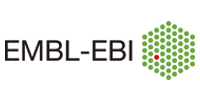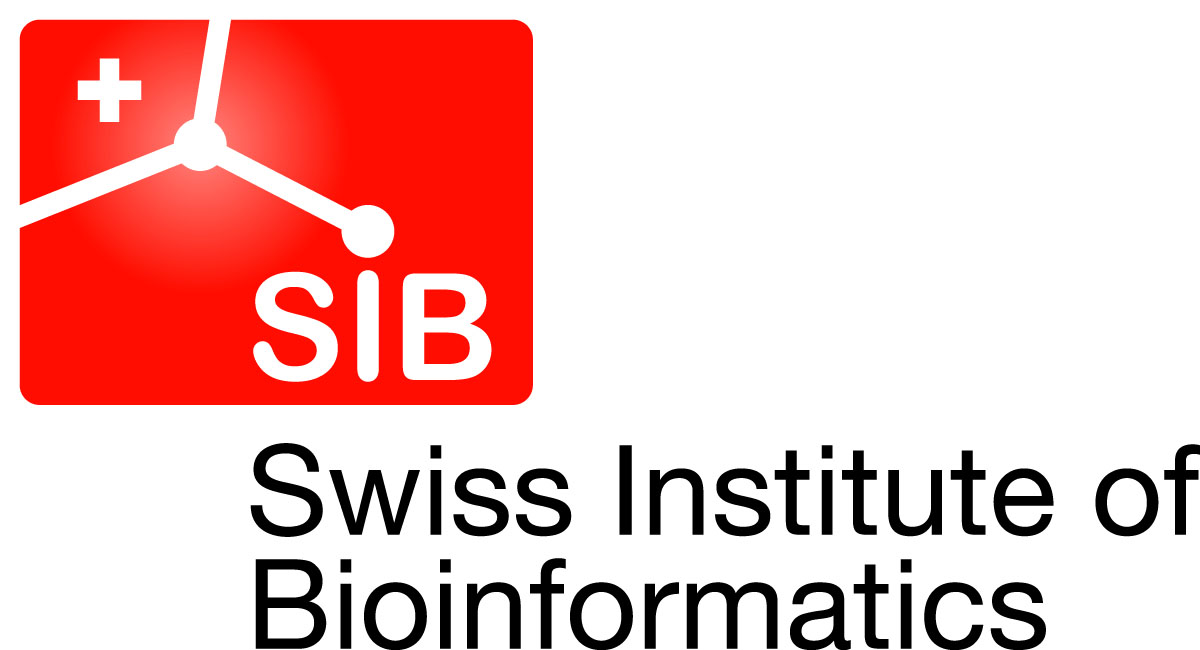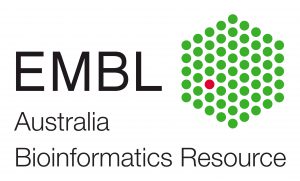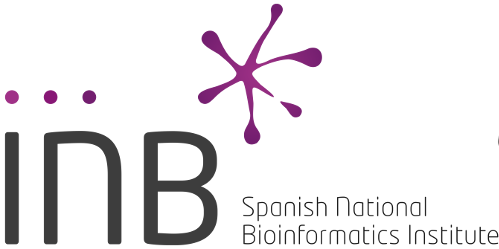Search results
-
Health data research infrastructures
Biomedical science -
e-learning
BioModels: Quick tour
Systems biology Systems modelling Mathematical modelling Modelling
-
Tutorial, Documentation
runBioSimulations tutorial and help
• beginnerSystems biology Computational biology Simulation experiment Modelling and simulation biosimulators COMBINE OMEX SED-ML Modeling dynamic simulations … -
Video
Model Creation using COPASI
• beginnerSimulation experiment Modelling and simulation Visualisation SystemsBiology ComputationalBiology Computational modelling modeling Biomodelling Model Kinetic modeling … -
Online material, Recording, hands-on tutorial
MaBoSS: a tool for modelling biological systems
 • beginnerMathematical modelling cancer Signalling boolean modelling logical modelling
• beginnerMathematical modelling cancer Signalling boolean modelling logical modelling -
e-learning
Data Repositories for Bioinformatics
 • beginnerData management Online Repository Data reuse Data mining FAIR Data
• beginnerData management Online Repository Data reuse Data mining FAIR Data -
Graphical & Computational Modelling of Biological Pathways
 • beginnerGraphical modelling Computational modelling Roslin Institute
• beginnerGraphical modelling Computational modelling Roslin Institute -
Video
Time Course Simulation in COPASI
• beginnerSimulation experiment Modelling and simulation Visualisation SystemsBiology ComputationalBiology Computational modelling Kinetic modeling COPASI -
Video
Metabolic Control Analysis in COPASI
• beginnerSimulation experiment Systems biology Modelling and simulation Data analysis Visualisation SystemsBiology ComputationalBiology Computational modelling Kinetic modeling COPASI -
Video
Parameter Scanning and Sampling in COPASI
• beginnerSimulation experiment Modelling and simulation Data analysis Visualisation SystemsBiology ComputationalBiology Computational modelling Kinetic modeling COPASI -
Video
Steady State Analysis in COPASI
• beginnerSystems biology Computational biology Simulation experiment Modelling and simulation Visualisation -
Tutorial, Documentation
BioSimulators tutorial and help
•• intermediateSystems biology Computational biology Simulation experiment Modelling and simulation Modeling biomodel dynamic simulations COMBINE OMEX SED-ML … -
RRegrs package
Regression Models
-
slides
BioImage Model Zoo: Advanced models in one-click
 • beginnerImaging Image analysis using Deep Learning bioimageio image analysis
• beginnerImaging Image analysis using Deep Learning bioimageio image analysis -
e-learning
Analysing and evaluating macromolecular models: Model quality assessment
Structural biology Structure analysis
-
e-learning
Mathematical modelling for biologists: Modelling concepts in biological research
Molecular modelling Systems biology Mathematics mathematics for biologists introductory
-
e-learning
ISMARA: A tool to infer genome-wide regulatory interactions
 • beginnerSystems biology Gene regulation Transcription factors and regulatory sites Computational modelling
• beginnerSystems biology Gene regulation Transcription factors and regulatory sites Computational modelling -
Documentation, Exercise, Handout, Scripts
PSLS20 - Practical Statistics for the Life Sciences (2020)
•• intermediateStatistics General Linear Models -
Introduction to Mixed Models
 • beginnerMixed models Roslin Institute
• beginnerMixed models Roslin Institute -
Introduction to Statistical Modelling
 • beginnerStatistical modelling Roslin Institute
• beginnerStatistical modelling Roslin Institute -
Graphical & Computational Modelling of Biological Pathways
 • beginnerGraphical modelling Roslin Institute
• beginnerGraphical modelling Roslin Institute -
examples, Tutorial, Jupyter notebook, API reference
DE-Sim examples, tutorials, and documentation
••• advancedSimulation experiment Computer science Mathematics Computational biology Modelling and simulation Visualisation data-driven modeling Computational modelling discrete-event simulation DES … -
slides
Building Reliable Machine Learning Models with PyCaret: A Case Study on the LORIS Model
 • beginnerStatistics and probability Statistics and machine learning
• beginnerStatistics and probability Statistics and machine learning -
Jupyter notebook
BioExcel Building Blocks (BioBB) Training Material
• beginnermolecular dynamics Docking Modeling life sciences -
sib-swiss/llm-biodata-training
Python script Python Artificial intelligence Large language models
-
Slides
FAIRification & Data modelling
FAIR linked data ontologies metadata
-
e-learning
Species distribution modeling
 • beginnerEcology biodiversity gbif interactive-tools modeling species populations EBV class
• beginnerEcology biodiversity gbif interactive-tools modeling species populations EBV class -
dwaithe/model-training
Image analysis Python
-
Tutorial
Tutorial on developing Building Blocks
 •• intermediateBioinformatics Workflows Personalised medicine HPC building blocks
•• intermediateBioinformatics Workflows Personalised medicine HPC building blocks -
Tutorial
Tutorial on using existing PerMedCoE Building Blocks and workflows
 •• intermediateBioinformatics Workflows Personalised medicine Building blocks
•• intermediateBioinformatics Workflows Personalised medicine Building blocks
-
ELIXIR Systems Biology Community: training events and materials
The ELIXIR Systems Biology Community aims to coordinate and promote systems biology activities within ELIXIR .
-
ELIXIR Toxicology Community
Toxicology has been an active research field for many decades, with academic, industrial and government involvement. Modern omics and computational approaches are changing the field, from merely disease-specific observational models into target-specific predictive models.
Traditionally,...
-
PINK project
Safe-and-Sustainable-by-Design (SSbD) advanced materials and chemicals (AdMas&Chems) are a central requirement for reaching the ambitious goal of making Europe the first digitally-enabled circular, climate-neutral and sustainable economy. Such new AdMas&Chems need to provide the high...
-

BioExcel
BioExcel is the leading European Centre of Excellence for Computational Biomolecular Research. BioExcel develops some of the most popular open-source applications for modelling and simulations of biomolecular systems along with user-friendly workflows and container solutions. The software stack...
0 events (17 past events)BioExcel http://bioexcel.eu/ https://tess.elixir-europe.org/content_providers/bioexcel BioExcel is the leading European Centre of Excellence for Computational Biomolecular Research. BioExcel develops some of the most popular open-source applications for modelling and simulations of biomolecular systems along with user-friendly workflows and container solutions. The software stack comes with great performance and scalability capabilities for extreme-scale utilization of the world's largest high-performance computing (HPC) and high-throughput computing (HTC) compute resource. /system/content_providers/images/000/000/053/original/BioExcel_logo_payoff.png?1470306206 -

OpenRiskNet
The main objective of OpenRiskNet is to develop an open e-Infrastructure providing resources and services to a variety of communities requiring risk assessment, including chemicals, cosmetic ingredients, therapeutic agents and nanomaterials.
OpenRiskNet is
* a virtual research environment for...0 events (10 past events)OpenRiskNet https://openrisknet.org/ https://tess.elixir-europe.org/content_providers/openrisknet The main objective of OpenRiskNet is to develop an open e-Infrastructure providing resources and services to a variety of communities requiring risk assessment, including chemicals, cosmetic ingredients, therapeutic agents and nanomaterials. OpenRiskNet is * a virtual research environment for predictive toxicology and chemical and nanomaterial risk assessment, * harmonising access to data and facilitating interoperability of software, * easily deployable to single computers, public and in-house cloud solutions, * addressing the needs of industry and academic researchers, risk assessors, regulators and informed public. OpenRiskNet (Grant Agreement 731075) is a 3-years project funded by the European Commission within the Horizon2020 Programme /system/content_providers/images/000/000/097/original/ORN-Web_Logo3.png?1533933310 -

PerMedCoE
PerMedCoE is the HPC/Exascale Centre of Excellence for Personalised Medicine in Europe.
12 training materialsPerMedCoE https://permedcoe.eu https://tess.elixir-europe.org/content_providers/permedcoe PerMedCoE is the HPC/Exascale Centre of Excellence for Personalised Medicine in Europe. /system/content_providers/images/000/000/637/original/LOGO_PerMedCoE.jpg?1636473064 -
Genome 3D
Genome3D provides consensus structural annotations and 3D models for sequences from model organisms, including human.
These data are generated by several UK based resources in the Genome3D consortium:
SCOP, CATH, SUPERFAMILY, Gene3D, FUGUE, THREADER, PHYRE.8 training materialsGenome 3D http://genome3d.eu/ https://tess.elixir-europe.org/content_providers/genome-3d Genome3D provides consensus structural annotations and 3D models for sequences from model organisms, including human. These data are generated by several UK based resources in the Genome3D consortium: SCOP, CATH, SUPERFAMILY, Gene3D, FUGUE, THREADER, PHYRE. /system/content_providers/images/000/000/006/original/images?1469458224 -
Pattern Institute
Mission | The Pattern Institute is a nonprofit research organization dedicated to advancing scientific discovery, education, and outreach, with a particular emphasis on systems and complexity science. It applies mathematical and computational approaches to uncover patterns across the...
3 training materialsPattern Institute https://www.pattern.institute/training/ https://tess.elixir-europe.org/content_providers/pattern-institute **Mission** | The **Pattern Institute** is a nonprofit research organization dedicated to advancing scientific discovery, education, and outreach, with a particular emphasis on systems and complexity science. It applies mathematical and computational approaches to uncover patterns across the natural, formal, and social sciences. /system/content_providers/images/000/000/822/original/pi-logotype2.svg?1753360127 -

FAIRDOM
Research Infrastructure supporting life scientists in managing their data and models FAIRly. Specifically designed for interdisciplinary research such as systems biology, systems medicine, and synthetic biology.
0 events (2 past events)FAIRDOM https://fair-dom.org/ https://tess.elixir-europe.org/content_providers/fairdom Research Infrastructure supporting life scientists in managing their data and models FAIRly. Specifically designed for interdisciplinary research such as systems biology, systems medicine, and synthetic biology. /system/content_providers/images/000/000/100/original/Screen_Shot_2018-09-06_at_15.54.17.png?1536245244 -

Biomedical Sciences Research Center "Alexander Fleming"
The Biomedical Sciences Research Center "Alexander Fleming" is a non-profit research organisation based in Vari, Athens, Greece.
Since the beginning of its operations in 1998, the Center develops basic as well as translational and applied research programs at the cutting edge of modern...
1 training materialBiomedical Sciences Research Center "Alexander Fleming" https://www.fleming.gr/ https://tess.elixir-europe.org/content_providers/biomedical-sciences-research-center-alexander-fleming The Biomedical Sciences Research Center "Alexander Fleming" is a non-profit research organisation based in Vari, Athens, Greece. Since the beginning of its operations in 1998, the Center develops basic as well as translational and applied research programs at the cutting edge of modern biomedical sciences. Currently, the Center hosts 14 research groups distributed in 4 Institutes (Immunology, Molecular Oncology, Molecular Biology and Genetics, Cellular & Developmental Biology). Over the short period since its establishment, BSRC "Alexander Fleming" has gained extensive visibility in the European science arena. Fleming researchers have established transgenic animal models for rheumatoid arthritis, inflammatory bowel disease and multiple sclerosis and these models have served as a basis for multiple collaborations with the international biopharmaceutical industry in the evaluation of novel therapeutic compounds, or as tools for collaborative R&D. The Center is equipped with state-of-the-art Core Units which include: an Expression Profiling Facility, a Flow Cytometry Facility, a Protein Chemistry Lab, a Transgenics and gene targeting Unit, and a BioIT Unit, all of which serve internal collaborations, as well as external partners in academia and industry. The Center also runs an Innovation and Enterprise Unit that facilitates the protection and exploitation of the Center’s research and technologies. Fleming operates its own Animal House, which can house up to 15,000 mice, and has its own complete mouse histopathology unit. Fleming’s Animal house (certified with ISO 9001) provides husbandry of animals and services to the biomedical research community since 2001. It covers an area of approximately 600 m2 within the Center and is equipped with highly automated systems that provide the best possible conditions for mouse reproduction and maintenance. Its main activity is the reproduction and maintenance of mice stocks either of inbred strains or genetically engineered mice, such as transgenic and knockout mouse lines, as well as chemically induced mutants developed by Fleming researchers. The Animal House has a capacity to house more than 18,000 mice and is currently the largest Mouse Unit in Greece in terms of number and variety of mice. The Facility became a full member of EMMA in 2009. Main areas of research: Functional genomics and proteomics; Molecular and cellular immunology; Animal models of human disease; Transcriptional and post-transcriptional mechanisms of gene regulation; DNA repair; Stem Cell differentiation; Epigenetics; Learning and memory; ECM biology. Fields of excellence: Molecular mechanisms of disease (inflammation, cancer, metabolic syndrome, CNS disorders). /system/content_providers/images/000/000/051/original/logo.png?1469458221 -
Open Science MOOC
Open Science MOOC is a mission-driven project to help make ‘Open’ the default setting for all global research. We want to help create a welcoming and supporting community, with good tools, teachers, and role-models, and built upon a solid values-based foundation of freedom and equitable access to...
1 training materialOpen Science MOOC https://opensciencemooc.eu/ https://tess.elixir-europe.org/content_providers/open-science-mooc Open Science MOOC is a mission-driven project to help make ‘Open’ the default setting for all global research. We want to help create a welcoming and supporting community, with good tools, teachers, and role-models, and built upon a solid values-based foundation of freedom and equitable access to research. /system/content_providers/images/000/000/101/original/31343113?1536821365 -

eNanoMapper
eNanoMapper developed a computational infrastructure for toxicological data management of engineered nanomaterials (ENMs) based on open standards, ontologies and an interoperable design to enable a more effective, integrated approach to European research in nanotechnology. eNanoMapper supports...
10 training materialseNanoMapper http://enanomapper.net/ https://tess.elixir-europe.org/content_providers/enanomapper eNanoMapper developed a computational infrastructure for toxicological data management of engineered nanomaterials (ENMs) based on open standards, ontologies and an interoperable design to enable a more effective, integrated approach to European research in nanotechnology. eNanoMapper supports the collaborative safety assessment for ENMs by creating a modular, extensible infrastructure for transparent data sharing, data analysis, and the creation of computational toxicology models for ENMs. eNanoMapper was funded by the European Union’s Seventh Framework Programme for research, technological development and demonstration under grant agreement no 604134. /system/content_providers/images/000/000/092/original/logo.png?1528313779 -

proteomicsML
ProteomicsML provides ready-made datasets for machine learning models accompanied by tutorials on how to work with even the most complex data types in the field of proteomics. The resource is set up to evolve together with the field, and we welcome everyone to contribute to the project by adding...
1 training materialproteomicsML https://proteomicsml.org/ https://tess.elixir-europe.org/content_providers/proteomicsml ProteomicsML provides ready-made datasets for machine learning models accompanied by tutorials on how to work with even the most complex data types in the field of proteomics. The resource is set up to evolve together with the field, and we welcome everyone to contribute to the project by adding new datasets and accompanying notebooks. ProteomicsML was set up as a joint effort of SDU, CompOmics, LUMC, PeptideAtlas, NIST, PRIDE, and MSAID. We believe that ProteomicsML is solid step forward for the field towards more open and reproducible science! /system/content_providers/images/000/000/676/original/proteomicsml-logo.png?1686658675 -

COG-Train
COG-Train is an international educational initiative providing open-access learning in SARS-CoV-2 genomics. It aims to facilitate an increase in global genome sequencing and analysis capacity, reduce sequencing inequality and enhance pathogen surveillance.
The programme’s training courses and...
4 training materialsCOG-Train https://www.cogconsortium.uk/priority-areas/training/ https://tess.elixir-europe.org/content_providers/cog-train COG-Train is an international educational initiative providing open-access learning in SARS-CoV-2 genomics. It aims to facilitate an increase in global genome sequencing and analysis capacity, reduce sequencing inequality and enhance pathogen surveillance. The programme’s training courses and development are built around our core concept of partnering with international researchers, public health experts and surveillance networks and providing open-access FREE training for all. COG-Train is funded by Wellcome Trust and the Foreign, Commonwealth & Development Office and led jointly by COVID-19 Genomics UK (COG-UK) consortium and Wellcome Connecting Science (WCS). Whole Viral Genome sequencing is an essential tool to identify and track the emergence and spread of SARS-CoV-2 variants as the COVID-19 pandemic progresses. Sequence data informs public health interventions and the further development of diagnostics, therapeutics and vaccines. There is inequity of access to pathogen sequencing worldwide, and COG-Train is committed to contributing towards efforts that close this gap. By building global partnerships with sequencing networks and scientists around the world, we hope to build a truly inclusive training programme that shares the many challenges faced in sequencing efforts, as well as highlighting the numerous success stories, and facilitating knowledge sharing. Outputs include a series of massive online, open-access courses on all aspects of SARS-CoV-2 sequencing based on WCS’s successful use of the FutureLearn platform, as well as week-long intensive virtual training courses, short expert workshops and concurrent distributed Classrooms, the latter of which utilises blended training. The distributed classroom model will be used to increase reach and impact of the learning materials, with training being delivered simultaneously in multiple classrooms across many countries. The training programme includes train-the-trainer components to help further build capacity in-country, rather than rely on a one-hit train and leave model. The COG-Train educational programme builds on the COG-UK values of data sharing, open collaboration, value for money, inclusivity and the prioritisation of public health impact. /system/content_providers/images/000/000/644/original/COG-Train_Logo.png?1657104279 -

PINK project
Safe-and-Sustainable-by-Design (SSbD) advanced materials and chemicals (AdMas&Chems) are a central requirement for reaching the ambitious goal of making Europe the first digitally-enabled circular, climate-neutral and sustainable economy. Such new AdMas&Chems need to provide the high...
PINK project https://pink-project.eu https://tess.elixir-europe.org/content_providers/pink-project Safe-and-Sustainable-by-Design (SSbD) advanced materials and chemicals (AdMas&Chems) are a central requirement for reaching the ambitious goal of making Europe the first digitally-enabled circular, climate-neutral and sustainable economy. Such new AdMas&Chems need to provide the high functionality required for their advanced applications, whilst simultaneously exhibiting improved safety and sustainability performances that take into account the complete value chain and life cycle, as outlined in the SSbD framework proposed by the EU Joint Research Centre and adopted in the Commission Recommendation of 8 Dec. 2022. To facilitate adoption by industry and, by doing so, foster the twin green and digital transition of Europe’s economy, PINK’s overarching aim is to produce innovative modelling software and integrated workflows for the development of AdMas&Chems, which are combined into an industry-ready open innovation platform, the PINK In Silico Hub (PINKISH). /system/content_providers/images/000/000/777/original/pink-logo-orange-colorB-500.png?1719919427 -

EMBL-ABR
EMBL Australia Bioinformatics Resource (EMBL-ABR) is a distributed national research infrastructure providing bioinformatics support to life science researchers in Australia.
EMBL-ABR aims to:- increase Australia’s capacity to collect, integrate, analyse, exploit, share and archive the...
9 training materials0 events (193 past events)EMBL-ABR https://www.embl-abr.org.au/ https://tess.elixir-europe.org/content_providers/embl-abr EMBL Australia Bioinformatics Resource (EMBL-ABR) is a distributed national research infrastructure providing bioinformatics support to life science researchers in Australia. EMBL-ABR aims to: 1. increase Australia’s capacity to collect, integrate, analyse, exploit, share and archive the large heterogeneous data sets now part of modern life sciences research 2. contribute to the development of and provide training in data, tools and platforms to enable Australia’s life science researchers to undertake research in the age of big data 3. showcase Australian research and datasets at an international level 4. enable engagement in international programs that create, deploy and develop best practice approaches to data management, software tools and methods, computational platforms and bioinformatics services. EMBL-ABR is structured as a hub/nodes model, with the Hub located at Melbourne Bioinformatics (formerly VLSCI), University of Melbourne. EMBL-ABR is also currently exploring engagement with the European infrastructure for biological information, ELIXIR, and other relevant international efforts. One of EMBL-ABR Key areas is TRAINING, and as such we are involved in diverse projects relevant for bioinformatics training in Australia, with a current focus on Open Science and Bioinformatics. /system/content_providers/images/000/000/072/original/embl-australia-logo-colour-FIN-e1462860151765.jpg?1488905402 -

INB: Spanish National Bioinformatics Institute
The Spanish National Bioinformatics Institute (‘Instituto Nacional de Bioinformática’ in Spanish, or short INB), founded in 2003 following the decentralized model of nodes of the Swiss Institute of Bioinformatics (SIB), is the bioinformatics technology platform of the Carlos III Health Institute...
0 events (14 past events)INB: Spanish National Bioinformatics Institute https://inb-elixir.es https://tess.elixir-europe.org/content_providers/inb-spanish-national-bioinformatics-institute The Spanish National Bioinformatics Institute (‘Instituto Nacional de Bioinformática’ in Spanish, or short INB), founded in 2003 following the decentralized model of nodes of the Swiss Institute of Bioinformatics (SIB), is the bioinformatics technology platform of the Carlos III Health Institute (‘Instituto de Salud Carlos III‘ or ISCIII) since January 2018. The INB has increased the participant nodes to 19 research groups distributed across 13 institutions in Spain. The two main overarching objectives are maintaining and increasing the alignment of the INB with ELIXIR (European Life Science Infrastructure for Biological Information) looking for deeper synergies, while increasing the translational capacity of the INB towards the Spanish National Health System (SNS). The INB serves in the coordination, integration and development of Spanish bioinformatics resources in projects in the areas of genomics, proteomics and translational medicine. It has contributed to the creation of a consistent computational infrastructure in the area of bioinformatics, participated in national and international genome projects, and trained bioinformatics users and developers. The INB is in a strategic position as an interface between developments at the national and international level by research centers, initiatives such as the Global Alliance for Genomics and Health (GA4GH), and organizations such as ELIXIR, and bioinformatic groups directly related to clinical practice. **Spain is member of ELIXIR since 2015, with the INB as the Spanish national node**. Within ELIXIR, the INB is responsible for the bioinformatics infrastructure offered by Spain, and therefore, should guarantee its alignment to the strategic areas put forward by ELIXIR. /system/content_providers/images/000/000/110/original/logoINB.png?1550073283



